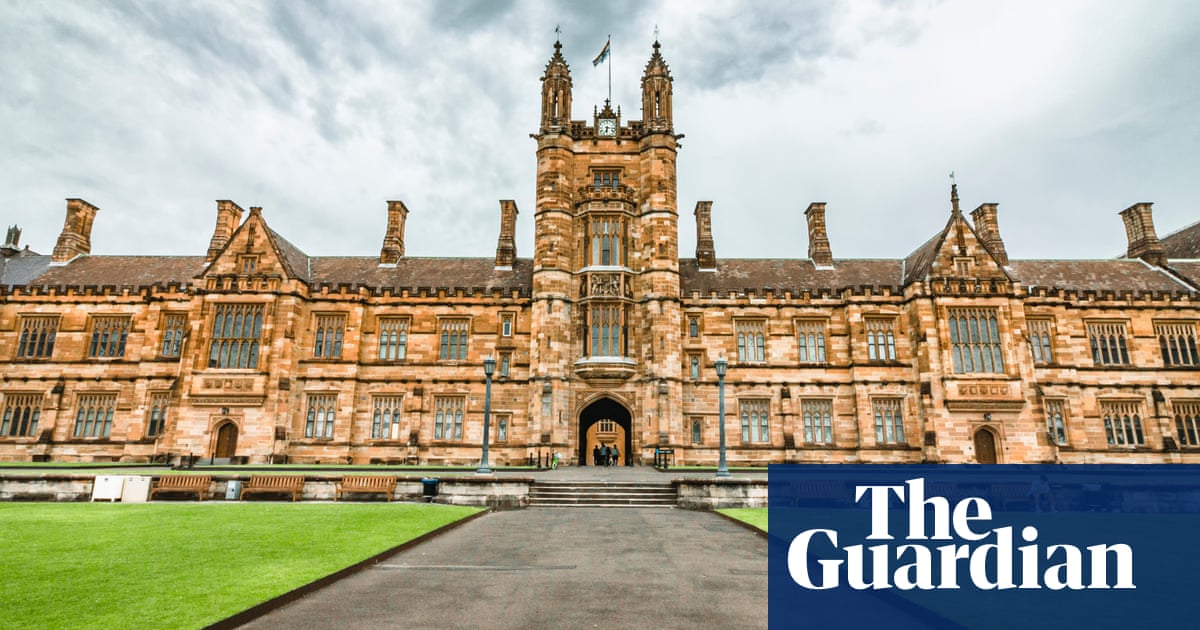Australian universities are urging the Albanese government to join New Zealand in a $170bn Europe research fund amid US president Donald Trump’s sweepingcrackdown on higher educationandinternational students.
Universities Australia’s executive officer, Luke Sheehy, travelled to Brussels this week to meet representatives from the European Commission and the Australian ambassador, Angus Campbell, to discuss the possibility of joining Horizon Europe.
The seven-year scientific collaborative research fund, with a budget of €95.5bn ($168bn), has 20 non-European partners – including New Zealand, the United Kingdom and Canada – but the Australian government has so far been reluctant to join.
Industry insiders have attributed the government’s reluctance to potential costs. New Zealand will pay €19m ($33m) over five years to be part of the program.
The EU isdrawing up strategiesfor the next seven-year funding cycle, due to begin in 2028, with a proposal expected to be announced mid-year. About €36bn ($63bn) is still available to the end of 2027.
In comparison, Australia’s total annual spend on research across all sectors is less than $40bn.
Sign up for Guardian Australia’s breaking news email
Sheehy said in a rapidly changing global environment, association with the body would give Australian researchers access to a mega-fund and support international collaboration on key sectors, including health and the environment.
“Growing geopolitical uncertainties are threatening to reshape our existing research alliances and we must adapt to remain ahead of the game,” he said.
“If we’re serious about building a prosperous and productive economy, we need a seat at the table, particularly in a changing and more complex global environment.”
The trade minister, Don Farrell, is in Paris this week restarting negotiations on a trade deal with the EU. Sheehy “strongly encourage[d]” him to make Australia’s involvement in Horizon Europe a focus of conversations.
“There is a strong appetite in Europe to have Australia come on board,” Sheehy said.
“This would remove the biggest roadblock for Australian researchers and scientists working with their European and other counterparts around the world. It’s mutually beneficial.
“For what is a relatively modest investment, our best and brightest would gain access to billions of dollars in potential funding to take their work to the next level.”
The higher eduction sector has closely focussed on Horizon Europe since the Trump administration was accused of possible“foreign interference”in Australia’s universities in March, pausing funding for programs at more than six universities.
Researchers who receive US funding were sent a questionnaire asking them to confirm they aligned with US government interests and promoted administration priorities – including avoiding “DEI, woke gender ideology and the green new deal”.
Australia’s Group of Eight CEO, Vicki Thomson,wrote to then-industry minister, Ed Husic, earlier this year on behalf of its member universities and the European Australian Business Council (EABC) CEO, Jason Collins, urging Australia to associate with the research fund. It has prepared a brief for the ambassador to the US, Kevin Rudd, at his request.
Thomson, also the EABC deputy chair, has lobbied the government to join Horizon Europe for more than a decade. She will be meeting with stakeholders for negotiations in the next fortnight as part of an EABC delegation to Europe.
Thomson said association with Horizon Europe was “critical” to boosting productivity and providing essential buffers against negative global trends.
“Like trade, changes to the global research funding environment are also sending shocks around the world,” she said.
“The US is withdrawing from international research collaboration through the National Science Foundation, the National Institutes of Health and other agencies as well as defunding research in diversity, equity and inclusion.
“In the face of this, it is imperative that Australia maintains and extends international research collaboration through formal association with Horizon Europe.”
The Australian Academy of Science president, Prof Chennupati Jagadish AC, also wants Australia to join the lucrative research fund, pointing to a possible research vacuum in the face of an increasingly unstable US.
In April, the body announced anew global talent attraction programto capitalise on academics disfranchised by the Trump administration’s research cuts.
Americans represent 40% of collaborators in Australian physical sciences publications – including observational systems relied on for cyclone tracking capability and onshore mRNA vaccine manufacturing.
Jagadish said the government must “immediately act to diversify risk” by expanding international research collaborations, focusing on Horizon Europe.
The industry minister, Madeleine King, was approached for comment.
